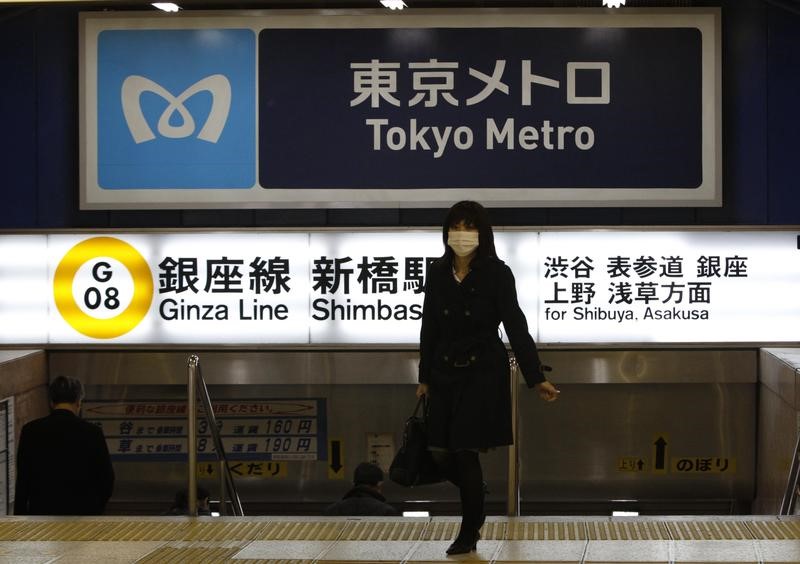Investing.com-- Consumer inflation in Japan’s capital grew slightly less than expected in September amid some cooling in consumer spending, although the reading still remained above the Bank of Japan's annual target.
Core consumer price index inflation- which excludes volatile items such as fresh food- rose 2.5% in the 12 months to September, data from the Statistics Bureau showed. The reading was below expectations of 2.6%, and August’s print of 2.8%.
A core reading which excludes both fresh food and energy prices also fell slightly to 3.8% in September from 4% in the prior month, although it remained close to 40-year highs. Headline CPI inflation fell to 2.8% from 2.9%.
The softer monthly reading was largely driven by a dip in the prices of recreational activities and discretionary items, as consistently high food costs saw households rethink their budgets.
Government subsidies on electricity and gas prices also helped ease some inflationary pressures, offsetting an increase in fuel prices as global oil prices rose.
The reading, which acts as a precursor to nationwide inflation, also comes in line with a Bank of Japan forecast that consumer inflation will ease in the near-term. But the bank expects inflation to pick up again towards the end of the year, as the effects of the government subsidies are baked into the economy.
But the inflation reading still remained above the BOJ’s 2% annual target. The central bank gave little indication during a meeting last week that it plans to alter its ultra-dovish monetary policy and raise interest rates from negative levels.
CPI inflation had surged to over 40-year highs earlier in 2023, before easing rapidly in recent months. But core inflation still remained high, indicating continued pressure on the economy.
Other economic data released on Friday also pointed to a mixed outlook for the Japanese economy. The country’s unemployment rate unexpectedly grew to 2.7% in August, while retail sales grew more than expected through the month.
